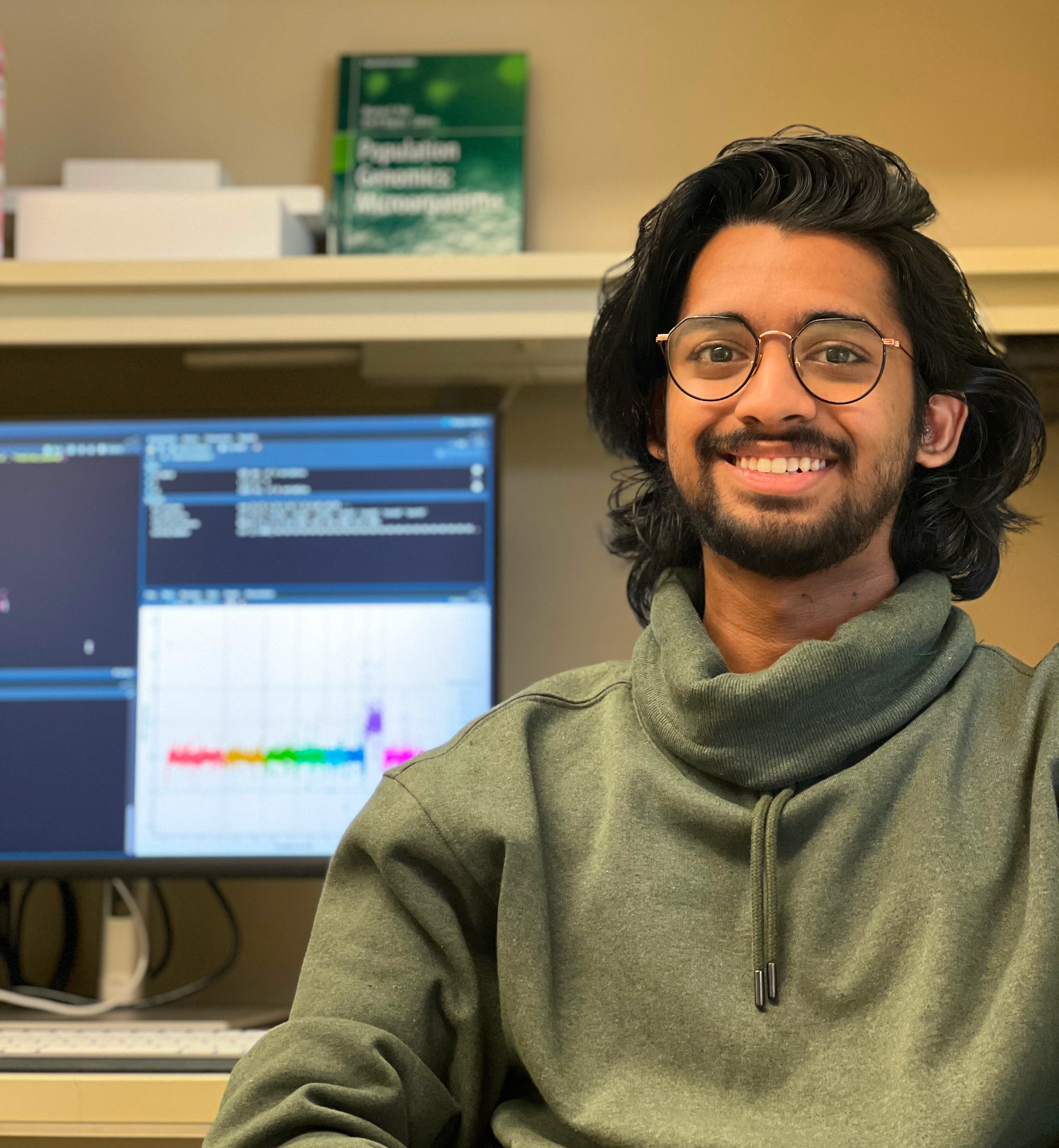Adarsh Jay
Étudiant au doctorat / Génomique évolutive
e-mail: adarsh.jay.1 [at] ulaval.ca
Biographie
J’avais 13 ans lorsque j’ai décidé de devenir scientifique. Même à cet âge, je savais que c’était la biologie qui m’attirait le plus. Regarder différents types de cellules et de microbes au microscope m’a toujours émerveillé. Après avoir consacré beaucoup d’efforts à étude de nombreuses matières différentes et ayant réussi plusieurs examens d’entrée en médecine et en ingénierie en Inde, l’idée de me spécialiser dans une seule matière et de perdre le contact avec les autres domaines au bout de queques années m’était terrifiante. C’est pourquoi, en 2018, j’ai choisi de suivre un diplôme intégré BS-MS à l’Institut indien d’enseignement et de recherche scientifiques de Thiruvananthapuram (IISER-TVM), car cela garantissait que je serais constamment exposé à plusieurs domaines scientifiques. C’est à cette époque que j’ai eu mon premier ordinateur et c’était comme regarder à nouveau dans un microscope. Logiciels, matériel informatique, Internet – toutes ces choses que je n’avais auparavant qu’étudiées, étaient désormais à ma portée. J’ai eu l’opportunité de réaliser un projet intensif en bioinformatique entre 2022 et 2023 pour ma maîtrise r qui consistait à identifier les variations structurelles et génétiques de la levure lorsqu’elle est exposée à divers types de stress grâce à une approche de séquençage du génome. À la fin de cette période, j’étais sûr de vouloir explorer la myriade de sujets qui existent à la frontière de la biologie et de l’informatique. Je crois que tout effort de recherche productif est toujours de nature interdisciplinaire et que ces deux domaines ont d’immenses capacités complémentaires. C’est pourquoi, convaincu que les découvertes révolutionnaires ne sont qu’à quelques clics de souris, j’ai rejoint le Laboratoire Landry en tant qu’étudiant au doctorat à l’automne 2023.
Intérêts
J’ai beaucoup travaillé avec les données NGS et je connais de nombreux outils bioinformatiques essentiels. Bien que je sois un grand fan du langage de programmation R, j’ai de l’expérience dans la gestion de gros jeu de données et dans le développement de modèles d’apprentissage automatique dans MATLAB et Python respectivement. En utilisant ces outils, j’ai l’intention d’étudier l’évolution de la résistance aux antifongiques chez les levures pathogènes via des études de génomique des populations de souches cliniques et expérimentales de Candida spp. À terme, mon objectif est de développer des outils d’apprentissage automatique pour la prédiction de la résistance basés sur des modèles de polymorphisme dans le génome fongique et de rendre ces outils accessibles aux laboratoires de santé publique pour leur mise en œuvre. Le fait de discerner l’ordre dans le monde chaotique des systèmes biologiques est extrêmement satisfaisant pour moi. Le fait qu’il soit possible d’y parvenir dans les limites de quelques lignes de codes est très passionnant.
